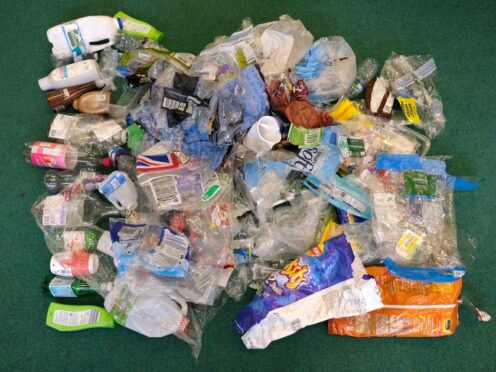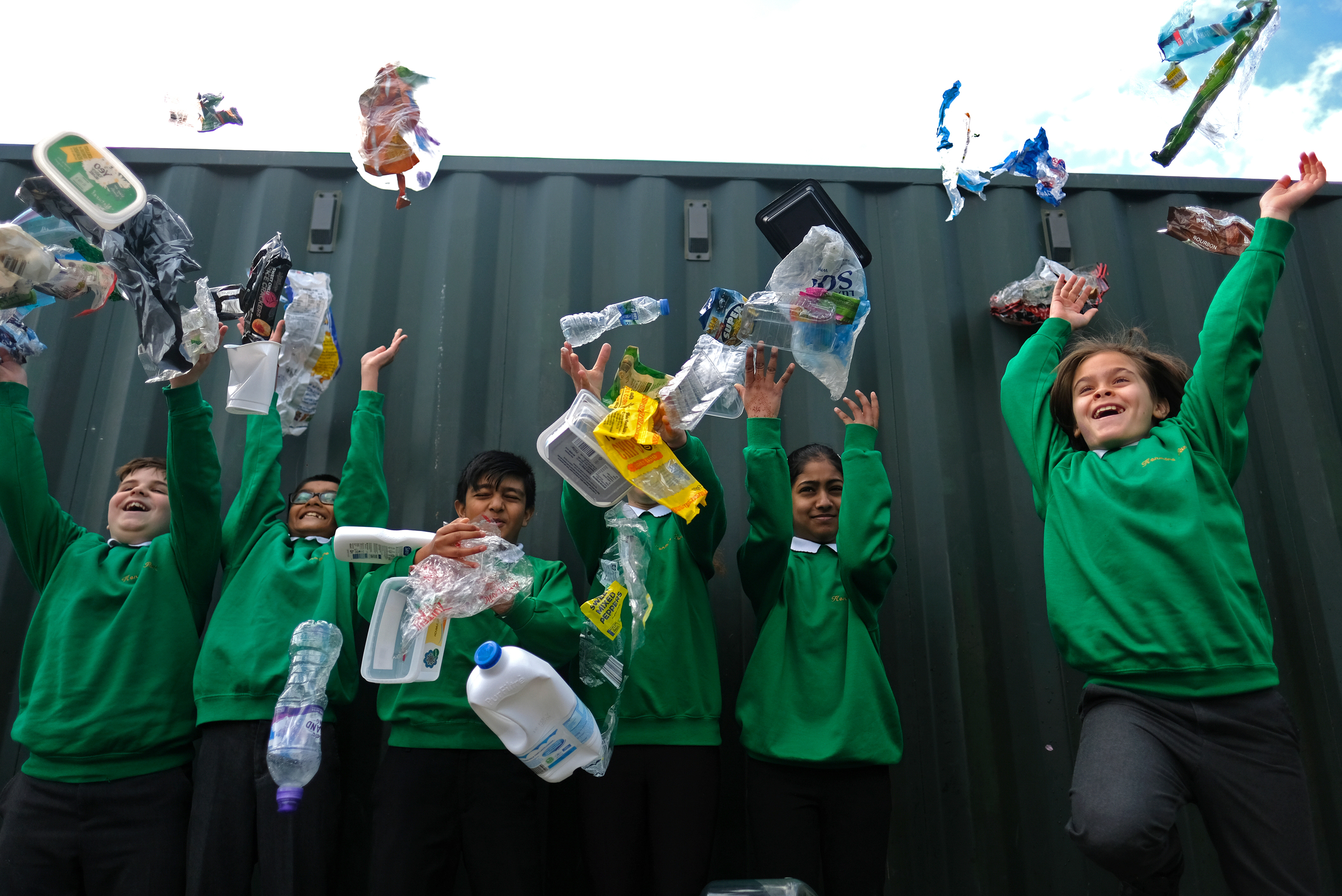
UK households throw away 1.7 billion pieces of plastic packaging a week, a survey involving thousands of families, schools and even MPs suggests.
The “big plastic count”, conducted by Greenpeace UK and Everyday Plastic, involved almost 225,000 people from 77,000 households – including 28,000 pupils from more than 5,000 school classes.
Some 50 MPs also took part in the scheme, which saw people counting the amount of plastic packaging they threw away over a week.
REVEALED: the shocking state of plastic waste in the UK👇
The #BigPlasticCount results are in, and show that now more than ever, we NEED a #GlobalPlasticsTreaty
Sign the petition – https://t.co/1HqQmhnQs2 pic.twitter.com/lmt52Qqo1h
— Greenpeace UK (@GreenpeaceUK) April 16, 2024
It found they binned a total of nearly 4.64 million pieces – around 60 items per household.
If that is reflected across all UK households, it equates to 1.7 billion pieces of plastic packaging a week, and 90 billion pieces of waste a year.
The survey found snack packaging and veg packaging were the most commonly counted plastic packaging.
The count also estimates that more than half the plastic packaging pieces being thrown away (58%) were incinerated, which campaigners warn adds to greenhouse gases and poses health risks to communities near incinerators, and just 17% was recycled.
The campaign groups warned that the UK threw away more plastic per person than every other country except the US, and recycling would never be able to catch up with the amount of plastics being produced.

With 81% of plastic in the survey counted consisting of food and drink packaging, likely coming from supermarkets, Greenpeace and Everyday Plastic are urging retailers to do more to reduce unnecessary plastic packaging.
The campaign groups are calling on supermarkets and policymakers to embrace reuse and refill schemes, and for the Government to ban all plastic waste exports by 2027, implement the long-awaited deposit return scheme and end approvals for new incinerators.
The big plastic count 2024 comes ahead of the latest meeting to negotiate a global plastics treaty, with polling by Greenpeace International showing significant support for action to tackle the problem.
The campaign groups want the UK Government to show leadership at the negotiations by calling for a legally binding global target to cut plastic production by at least 75% by 2040.
Daniel Webb, founder and director of Everyday Plastic, said: “Over 224,000 people from across the country took part in the big plastic count this year.
“Our participants have helped us to expose the plastic waste crisis through this unique and engaging investigation, and we’ve revealed that more plastic waste is being burned than ever.
“Over half of the counted plastic packaging (58%) is ending up at an incinerator, a significant increase on the last count in 2022.
“It’s time that the Government and supermarkets take urgent action to stop endless plastic production.”
Laura Burley, project lead for the big plastic count at Greenpeace UK, said: “If I started counting every bit of plastic packaging the UK throws away in a week, it would take me until 2077 to count every piece.
“The problem is huge, and the challenge of fixing it can feel overwhelming.
“There are solutions out there though. We just need our politicians and big businesses to grasp them – whether that’s moving to refill and reuse products that are accessible to all or introducing targets to cut plastic production.”
The count had academic support from the Revolution Plastics Institute at the University of Portsmouth.
An Environment Department (Defra) spokesperson said: “We are pushing ahead with our programme of reforms to reduce waste and improve our use of resources, as part of our goal of eliminating avoidable waste by 2050.
“We’ve already taken billions of plastic bags out of circulation, banned plastic straws, stirrers and cotton buds and support proposals for a new legally binding plastics treaty to end plastic pollution.
“It’s essential we work closely with industry to make sure these reforms are a success, including as we deliver our extended producer responsibility scheme and introduce the deposit return scheme.”

Enjoy the convenience of having The Sunday Post delivered as a digital ePaper straight to your smartphone, tablet or computer.
Subscribe for only £5.49 a month and enjoy all the benefits of the printed paper as a digital replica.
Subscribe